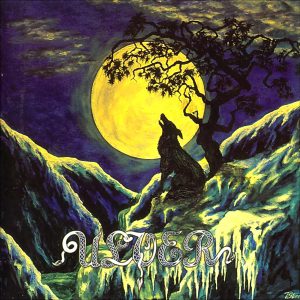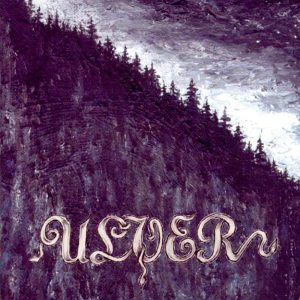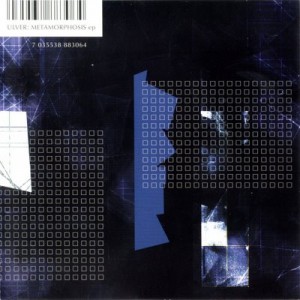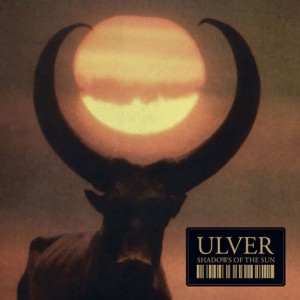Ulver Nattens Madrigal – Aatte Hymne Til Ulven I Manden Review
General Information:
Artist: Ulver
Album: Nattens Madrigal – Aatte Hymne Til Ulven I Manden
Genre(s): Heavy Metal
Subgenre(s): Black Metal
Released: 1997
Length: 44 minutes
Language(s): Dano-Norwegian
Label(s): Century Media
Track List:
01. Hymne I: Wolf and Fear
02. Hymne II: Wolf and the Devil
03. Hymne III: Wolf and Hatred
04. Hymne IV: Wolf and Man
05. Hymne V: Wolf and the Moon
06. Hymne VI: Wolf and Passion
07. Hymne VII: Wolf and Destiny
08. Hymne VIII: Wolf and the Night
Note: Some versions of this album only use the roman numerals shown above for the track list so track 1 is “I” and track 8 is “VIII” etc.
Ulver Nattens Madrigal – Aatte Hymne Til Ulven I Manden Review
Nattens Madrigal – Aatte Hymne Til Ulven I Manden, meaning “Madrigal of the Night – Eight Hymns to the Wolf in Man”, is the third album by Norwegian band Ulver. Bergtatt, their debut album, was a softer form of black metal with some influences from folk music, so Ulver proceeded to distil their hybrid sound into the original genres. The results of this are the neofolk sound on their second album, Kveldssanger, and their adherence to “raw” (read: under-produced) black metal here.
The reasoning behind this under-produced album is supposed to be an intentional backlash against the growing popularity of black metal and bigger record labels signing the bands. The irony here is that Ulver moved from a small label, Head Not Found, to Century Media which already had a slew of success throughout the 1990s with Demolition Hammer, Iced Earth, Moonspell, Nevermore and then the City album by Strapping Young Lad that was released approximately 3 weeks before Nattens Madrigal.
Unlike their previous two albums Nattens Madrigal is entirely undercooked as far as the recording goes. As a consequence the guitars sound like an angry swarm of bees, the drums patter away without any impact and the bass is an afterthought at best. Aside from a short acoustic interlude on track 1 and some even shorter ambient moments used to bridge certain songs together, there is nothing memorable or redeemable about this release.
If there is anything worthwhile under all the noise it is forever lost on the intentionally-made mess that black metal fans tend to sing the praises of – which it certainly does not deserve – and there is no hint of irony. For anyone outside of this musical circle the mythical status Nattens Madrigal has achieved will forever be lost on them.
If you didn’t have tinnitus before hearing Nattens Madrigal you certainly will after.
Performers:
Kristoffer “Garm” Rygg: Vocals
Havard “Haavard” Jorgensen: Guitar
Torbjorn “Aismal” Pedersen: Guitar
Hugh “Skoll” Stephen James Mingay: Bass
Eric “Aiwarikiar” Olivier Lancelot: Drums
External Links:
Ulver Homepage
Ulver on Wikipedia
Nattens Madrigal – Aatte Hymne Til Ulven I Manden on Wikipedia



